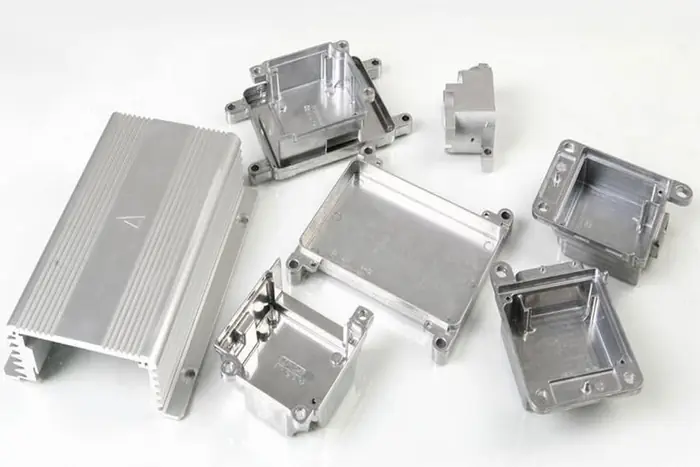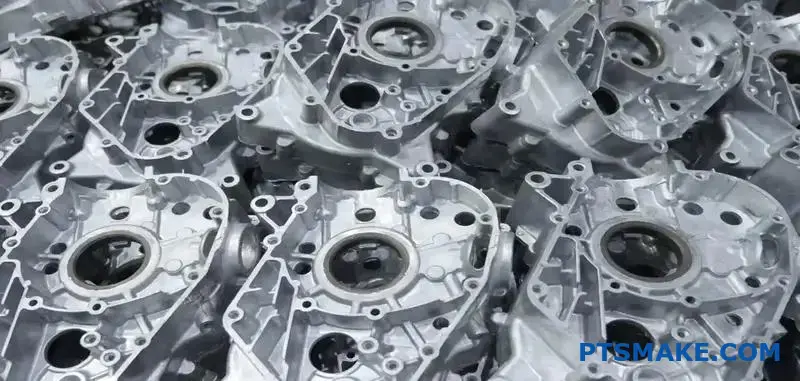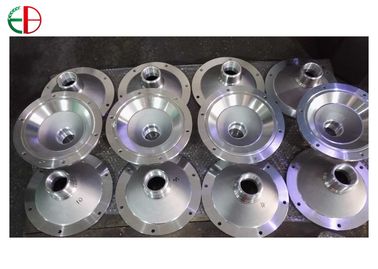The Function of Aluminum Foundries beforehand Lightweight Production Solutions
Light weight aluminum factories considerably add to the advancement of lightweight production solutions. Their innovative casting innovations yield high-strength, light-weight components essential for industries like automobile and aerospace. This advancement not just improves product performance however also promotes sustainability through the use of recycled products. As these foundries adapt to emerging practices and technologies, they lead the way for future advancements in producing performance and environmental responsibility. What exists ahead in this transformative trip?
The Benefits of Lightweight Materials in Manufacturing
As industries increasingly seek effectiveness and sustainability, the adoption of lightweight materials in production has actually emerged as a vital technique - Aluminum Foundry. These materials, specifically light weight aluminum and composites, offer various advantages that enhance manufacturing procedures and item performance. Largely, their lowered weight adds to reduce power intake throughout transport and procedure, resulting in significant price savings
Light-weight materials help with the style of even more facility geometries, allowing for greater advancement in product advancement. This versatility typically results in boosted functionality and efficiency, dealing with the evolving needs of contemporary consumers.
In addition, making use of lightweight materials can enhance the long life of items as a result of their resistance to deterioration and tiredness. This sturdiness not just minimizes upkeep expenses yet also supports sustainability campaigns, as longer-lasting items add to less waste. To sum up, the advantages of lightweight products are crucial in driving efficiency, technology, and environmental duty in production.
Advancements in Light Weight Aluminum Casting Technologies
Current developments in aluminum casting technologies are transforming the production landscape, particularly in the production of light-weight parts. Innovations such as high-pressure die casting and vacuum cleaner pass away casting have actually substantially enhanced the accuracy and surface coating of light weight aluminum components - Aluminum Casting Company. These approaches allow for the production of complex geometries while decreasing material waste and improving mechanical residential or commercial properties

Additionally, the execution of real-time tracking systems assures quality assurance throughout the casting process, bring about more constant item outcomes. Jointly, these developments not just enhance the performance of light weight aluminum parts but additionally sustain the sector's change in the direction of more lasting production techniques.
Applications of Aluminum Parts in Different Industries
While light weight aluminum parts have actually long been made use of in different markets, their flexibility and lightweight buildings remain to drive innovative applications across markets such as vehicle, aerospace, and construction. In the auto market, aluminum is increasingly used for engine blocks, wheels, and body panels, improving gas performance and performance. Aerospace producers take advantage of aluminum for aircraft frameworks and components, taking advantage of its strength-to-weight ratio to improve gas economy and payload ability.
In the building and construction market, light weight aluminum is favored for home window frameworks, roof, and structural components, supplying durability and resistance to rust while decreasing total structure weight. Furthermore, the electric and electronic devices industries profit from image source light weight aluminum's conductivity and lightweight nature, using it in circuitry, units, and warmth sinks. These diverse applications highlight the crucial function of light weight aluminum components, which not only meet industry needs yet additionally contribute to developments in item style and functionality throughout multiple fields.
Sustainability and Energy Effectiveness in Light Weight Aluminum Foundries
The light weight aluminum factory industry plays a crucial duty in advertising sustainability and energy performance, particularly as demand for lightweight components remains to grow throughout different sectors. Factories are progressively taking on eco-friendly techniques, such as using recycled light weight aluminum, which greatly reduces energy intake and greenhouse gas exhausts compared to primary light weight aluminum manufacturing.
Advancements in casting technologies improve energy effectiveness by maximizing the melting processes and minimizing waste. Strategies like die casting and investment casting enable for specific material usage, reducing excess and scrap.
In addition, many shops are purchasing renewable resource resources to power procedures, further lowering their carbon impact. Carrying out power management systems allows factories to boost and check power usage, ensuring they operate at peak efficiency.

Future Patterns in Lightweight Production Solutions
Exactly how will arising check this site out modern technologies shape the future of light-weight production services? Advancements such as sophisticated materials, automation, and additive manufacturing are established to redefine production procedures. The combination of wise production innovations, consisting of the Web of Points (IoT) and expert system (AI), will certainly allow real-time monitoring and optimization, boosting performance and minimizing waste.

As sustainability continues to be a critical concern, lightweight solutions will increasingly concentrate on reusing and reusing materials, lining up with round economy principles. This evolution in lightweight production will certainly not only boost product performance yet likewise add to environmental objectives, making sure that the market continues to be competitive in a quickly altering market landscape.
Regularly Asked Questions
Just How Do Aluminum Foundries Ensure Quality Assurance in Production?
Light weight aluminum shops ensure high quality control in production through rigorous testing, standard treatments, and constant monitoring - Precision aluminum casting. They apply sophisticated innovations and knowledgeable employees to maintain uniformity, reduce issues, and meet sector requirements throughout the manufacturing procedure
What Are the Main Tests Dealt With by Light Weight Aluminum Foundries?
Aluminum shops face obstacles such as varying basic material costs, preserving production efficiency, making certain consistent quality, adapting to technological developments, and conference ecological guidelines, every one of which influence their overall operational efficiency and competitiveness out there.
Exactly How Does Light Weight Aluminum Recycling Effect Shop Procedures?
Light weight aluminum recycling substantially boosts foundry operations by decreasing resources prices, reducing power usage, and decreasing ecological influence. This lasting method allows shops to improve effectiveness while fulfilling raising need for light-weight, high-performance aluminum items.
What Skills Are Required for Workers in Light Weight Aluminum Foundries?
Employees in aluminum foundries require skills in metallurgy, machining, quality control, and safety and security practices. Proficiency in operating equipment, recognizing alloy homes, and analytical are likewise essential for efficient manufacturing and keeping high security standards.
Exactly How Do Aluminum Foundries Handle Waste Monitoring?
Light weight aluminum factories take care of waste via reusing scrap steel, utilizing effective waste partition methods, and adhering to ecological laws. They apply lasting techniques to lessen garbage dump contributions, making sure that unsafe click to read materials are taken care of sensibly.
Light weight aluminum foundries significantly add to the development of lightweight production remedies. Recent advancements in light weight aluminum casting technologies are changing the manufacturing landscape, especially in the manufacturing of lightweight components. While aluminum components have long been used in various sectors, their convenience and lightweight residential or commercial properties proceed to drive ingenious applications across markets such as automotive, aerospace, and building and construction. Furthermore, the electrical and electronics markets profit from light weight aluminum's conductivity and lightweight nature, utilizing it in circuitry, units, and warm sinks. The light weight aluminum shop industry plays a crucial function in promoting sustainability and energy performance, specifically as demand for lightweight elements continues to grow across numerous industries.